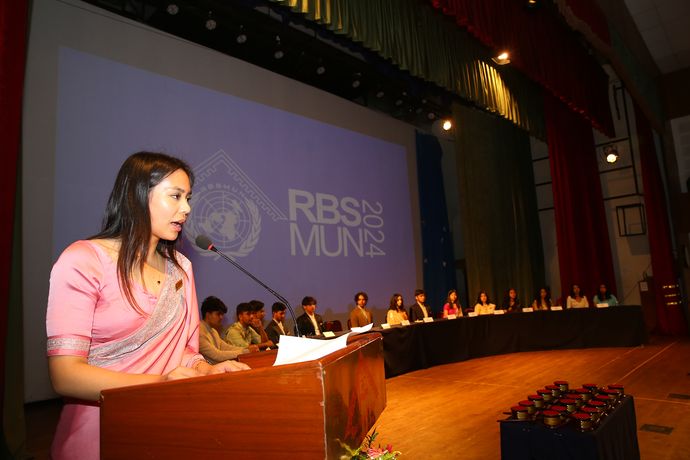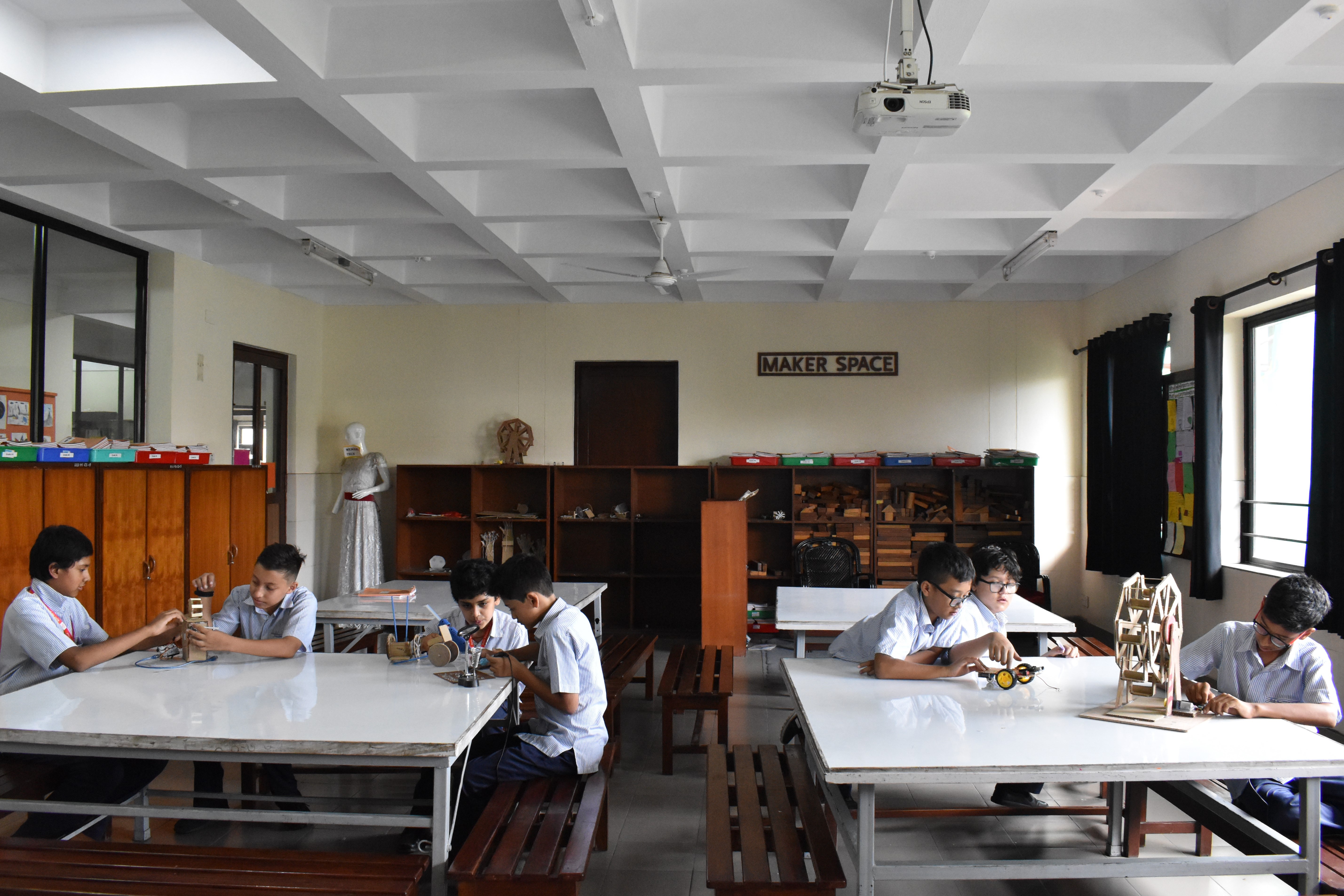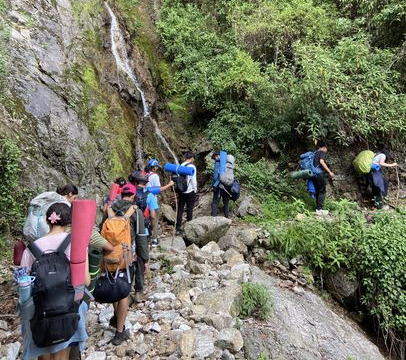









Rato Bangala School was the first school in Nepal to launch a fully-fledged simulation of the Model UN conference in 2005. The graduating class organizes an exemplary international Model UN conference every year with over 500 participants. Students have also been attending international Model UN conferences in India, and Sri Lanka including the Harvard Model United Nations in Boston, over the years. Rato Bangala students have introduced the Model UN to schools around the country serving as trainers and mentors. They have also initiated a project in which they help high school students of neighboring government schools simulate the Legislature-Parliament of Nepal in the Nepali language.
Youth Leadership program is initiated by two Princeton-in-Asia Fellows in 2016 at Rato Bangala School in which small groups of students initiate projects together with counterparts in public schools to effect concrete changes.
CLUBS

The Rato Bangala TED-Ed is an officially registered club that “supports students in discovering, researching, exploring and presenting their big ideas in the form of short, TED-style talks.” The TED-Ed members inspire their juniors.

Rato Bangala has an active debate club with members who have participated in the World School Debate Championships for the past seven years as national champions.

Rato Bangala has five Makerspaces dedicated to the STEAM (science, technology, engineering, art, and math) program. Students use appropriate material and engage deeply as they figure out solutions. The annual A-Level Science Expo showcases student projects for high school students in three districts.

Interested Middle school students run the Roots and Shoots Club.
Roots and Shoots is a movement founded by Jane Goodall to bring together young people to work on environmental conservation and humanitarian issues. It focuses on “best practices in Service Learning to grow compassion and action in young changemakers.”

Rato Bangala has five Makerspaces dedicated to the STEAM program. Students use appropriate material and engage deeply as they figure out solutions. The annual A-Level Science Expo showcases student projects for high school students in three districts.
In 1992 when Rato Bangala opened its doors, the Nepali art of reciting poetry in Chhanda was dying. Schools did not teach Chhanda recitation. Esteemed Literateur and the patron of RBS, the late Kamal Mani Dixit volunteered to teach and revive the art at RBS. He was very popular with the children who enjoyed Nepali poetry with Mr. Dixit thoroughly. Rato Bangala Foundation started including Chhanda recitation in the teacher education programs and the teaching of Chhanda recitation started spreading to schools across the country. In addition, Rato Bangala Kitab published two volumes of anthologies of Chhanda poetry curated by Mr. Kamal Mani Dixit. Our alums cherish the skills of recitation they gained at RBS.

The students get the opportunity to participate directly in the annual children’s literature festival as participants as well as organizers. Bal Sahitya Mahotsav is Nepal’s first children’s literature festival. It was first organized in 2015 by the Rato Bangala Group of Institutions, which includes Rato Bangala School, Rato Bangala Foundation, and Rato Bangala Kitab. It started with the vision of creating a movement, and now, in its fifth edition, it has become one. The purpose of Bal Sahitya Mahotsav is to foster a vibrant and joyful reading culture amongst children in Nepal and to increase parents’ and teachers’ awareness of the importance of reading.
The students get Forest School and Outdoor learning experience within the school compound as well as in Kavre and Jyamire, Kot Danda where students go on day trips as well as camping trips. A group of Rato Bangala teachers has received training in running the Forest School program.

Students at Rato Bangala School have the option of participating in the Duke of Edinburgh Award after their fourteenth birthday. The basic structure of the Award Programme consists of four mandatory Sections: Service, Adventurous Journey, Skills, and Physical Recreation. There are three levels of Award: Bronze, Silver, and Gold. The attractive part of the award is that it is non-competitive. The participants grow at their own pace with their own selected options and they grow into well-rounded, socially committed individuals while developing new skills and aptitudes.
“The Duke of Edinburgh’s International Award is a non-formal education and learning framework operating in more than 130 countries and territories around the world, through which young people’s achievements outside academics are recognized and celebrated.” (https://www.intaward.org).
MORE FROM RATO BANGALA SCHOOL

Grade IX students spend two-week taking the adventure course at the Himalayan Mountaineering Institute (HMI) every year.
Students select specialized activities such as basketball, football, martial arts, modern dance, art, guitar, theater, chess, music, 3di(Coding / Programming, Artificial Intelligence, AR / VR, Drones, Gamification, Robotics), and specialized special interest activities.

Guidelines and handbooks have been prepared to have clear communication of expectations and are made available to the students, staff, and parents. The goal is to make communication flow easily. These guidelines incorporate inputs from all the stakeholders.